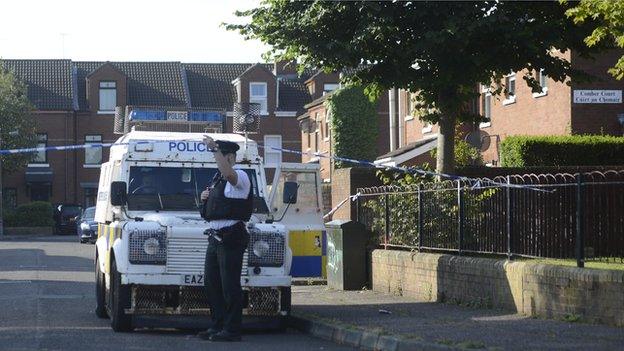DUP's Peter Robinson says Sinn Féin and SDLP will not get ministerial roles
- Published
Peter Robinson said he did not plan to allow ministries to go to Sinn Féin and the SDLP
The Democratic Unionist Party (DUP) leader Peter Robinson has said he will not allow Northern Ireland Executive ministries left vacant by his party's resignations to go to nationalists.
The DUP health, enterprise and social development ministers quit on Thursday amid the deepening political crisis.
Under Stormont rules, the roles could be offered to other executive parties.
But Mr Robinson said: "I don't plan to allow ministries to go to Sinn Féin and the SDLP."
The crisis was sparked by the murder of a former IRA man last month.
Breakdown
The killing of Kevin McGuigan Sr caused a political row after Northern Ireland's police chief said members of the IRA had a role in the murder, and that the organisation still existed.
But he added that it was committed to politics and is not engaged in terrorism.
Sinn Féin said the IRA had "gone away".
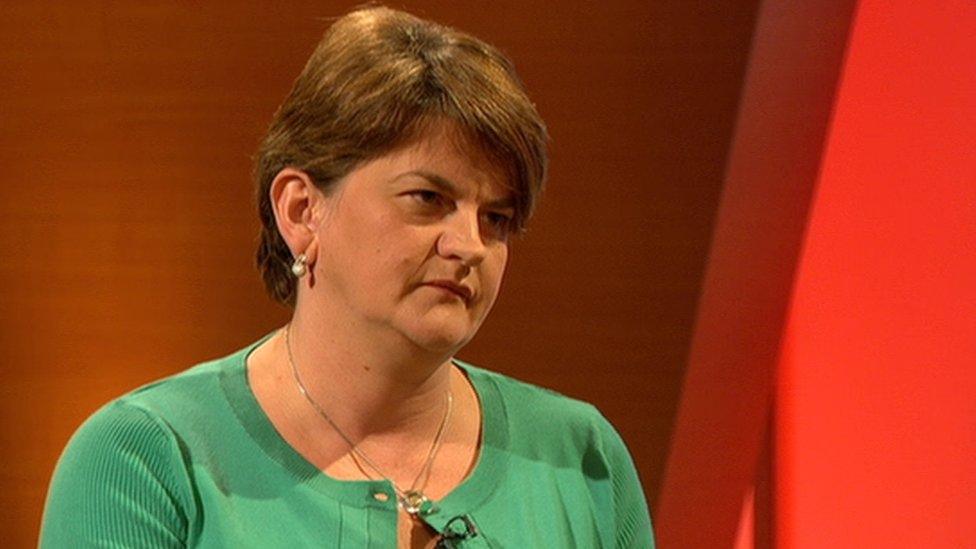
Arlene Foster remains as finance minister and has been appointed as acting first minister
But the Ulster Unionist Party said Sinn Féin's denial that the IRA existed caused a breakdown in trust and it left its government role.
The DUP then resigned its ministerial posts after the party failed to secure enough support for an adjournment of the assembly.
Tactics
Mr Robinson told BBC Radio Ulster's Inside Politics he did not think Sinn Féin should have "any additional ministries".
He said: "Why should they be rewarded for the bad behaviour that has brought around this set of circumstances?"
He said there were "all sorts" of tactics that the DUP could use.
But he did not specify which course of action the party would take.
In one possible scenario, the DUP could re-nominate their ministers within seven days and then they could resign again.
Fragile
Mr Robinson himself did not technically resign as first minister, but did "step aside".
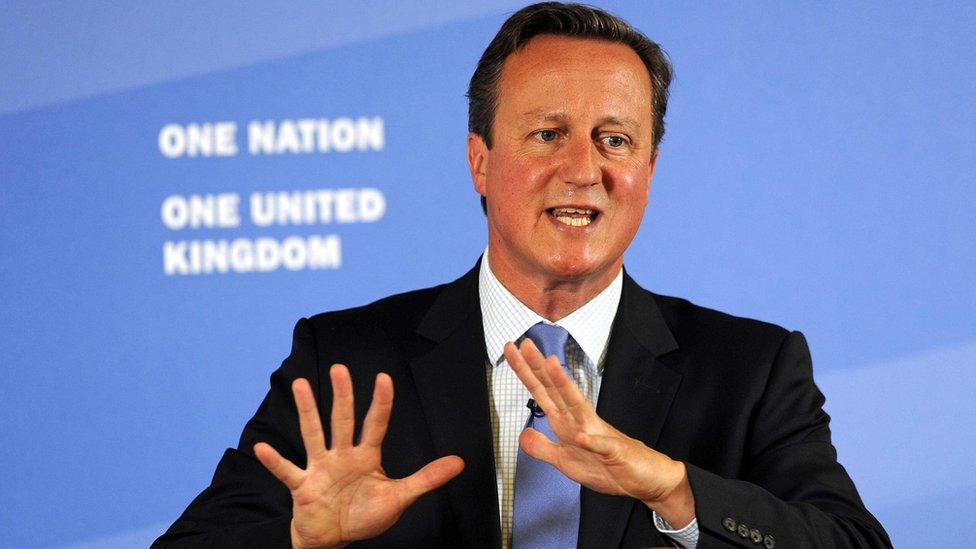
David Cameron said he wanted to see Northern Ireland's parties find a way to make Stormont work
Arlene Foster remains as finance minister and has become acting first minister.
That means there is no early election and the Stormont executive officially remains up and running, although it is in a fragile state.
Mr Robinson said: "Our objective was not to bring down the assembly and wreck the institutions.
"Our objective was to ensure that we wouldn't do business as usual while the issues that were outstanding, including dealing with paramilitaries, were negotiated."
Weeks
The government is calling the Northern Ireland parties to talks again on Monday.
Prime Minister David Cameron said: "I want to see the politicians of Northern Ireland... working out how to make these institutions work."
But Mr Robinson said the talks had to "take place in the proper atmosphere" and that his party was talking to the government to see how the negotiations would be set up.
"I'm hoping that we will get the right basis on which talks can take place. I'm not sure, but I hope that we can.
"If we can, then I think three, four or five weeks should be more than sufficient for us to deal with all of the necessary issues."
- Published11 September 2015
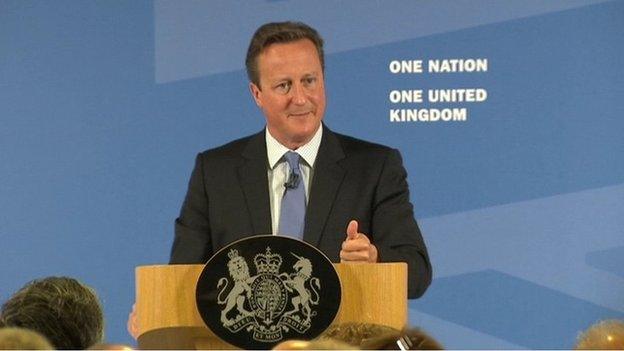
- Published11 September 2015
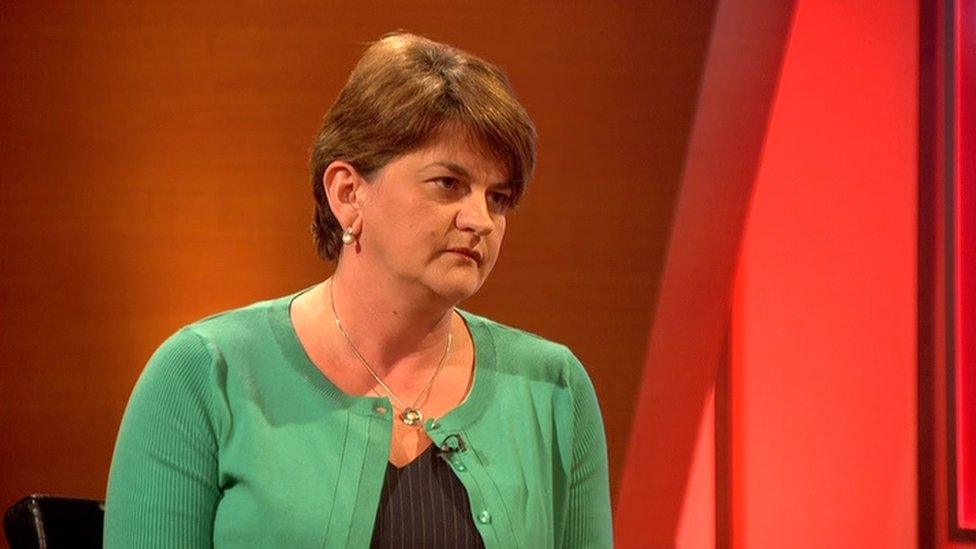
- Published11 September 2015
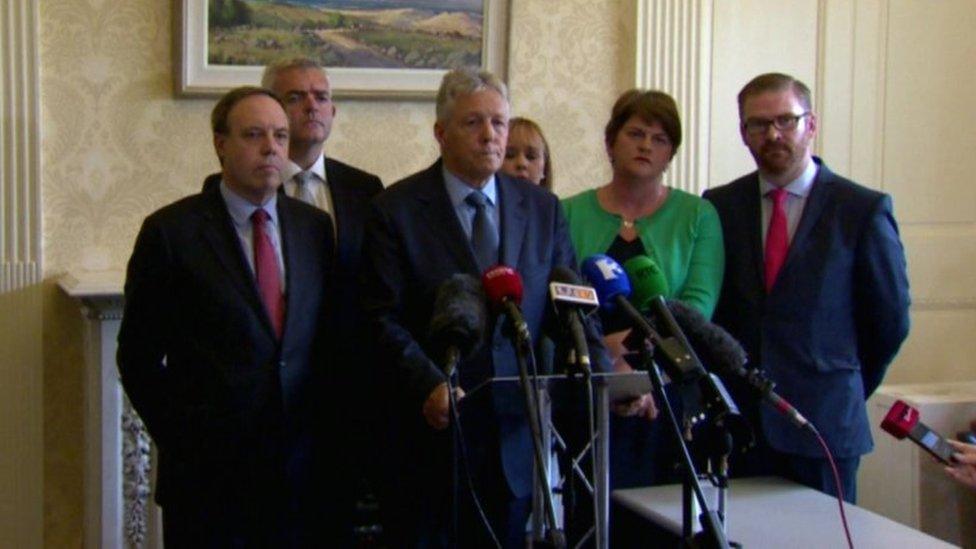
- Published11 September 2015
- Published13 November 2015
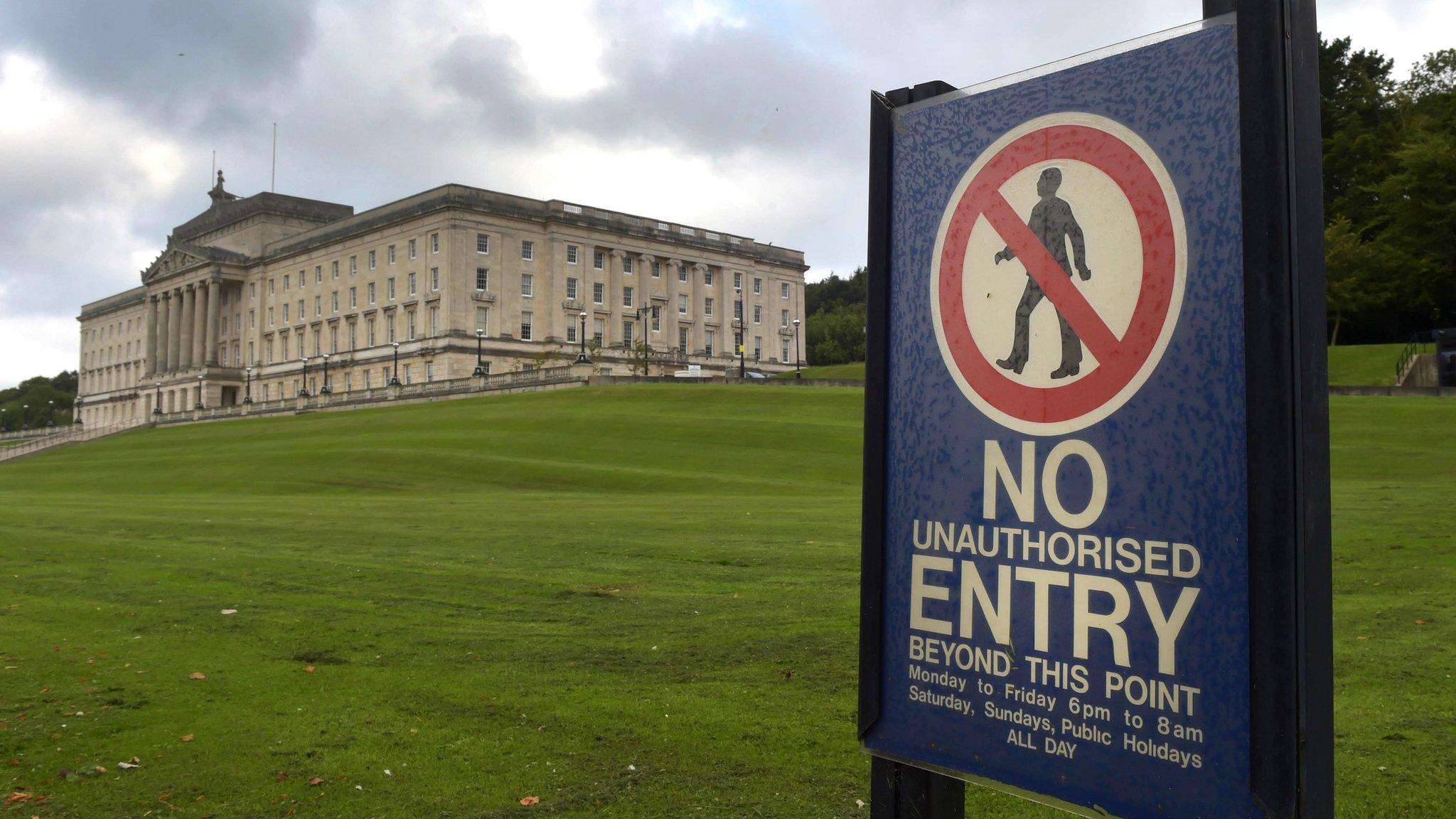
- Published10 September 2015
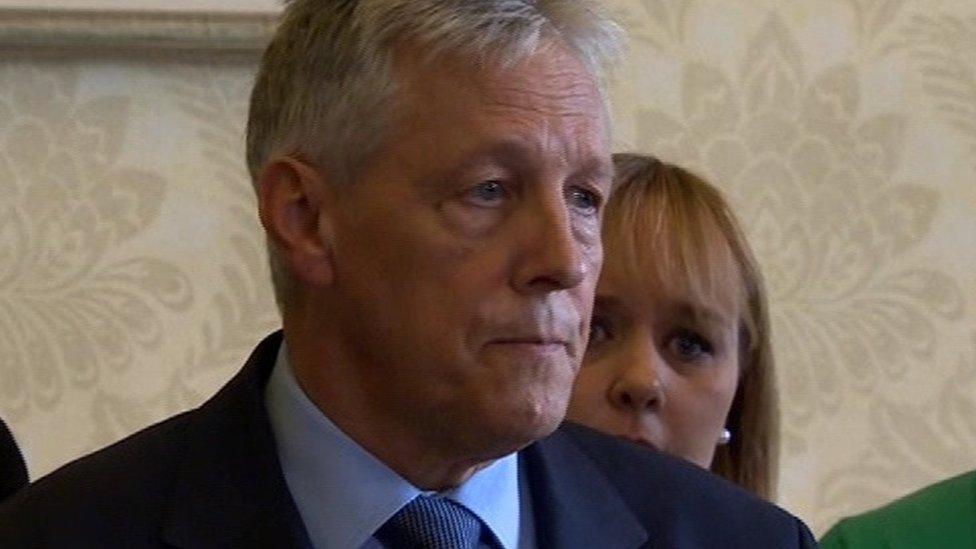
- Published10 September 2015
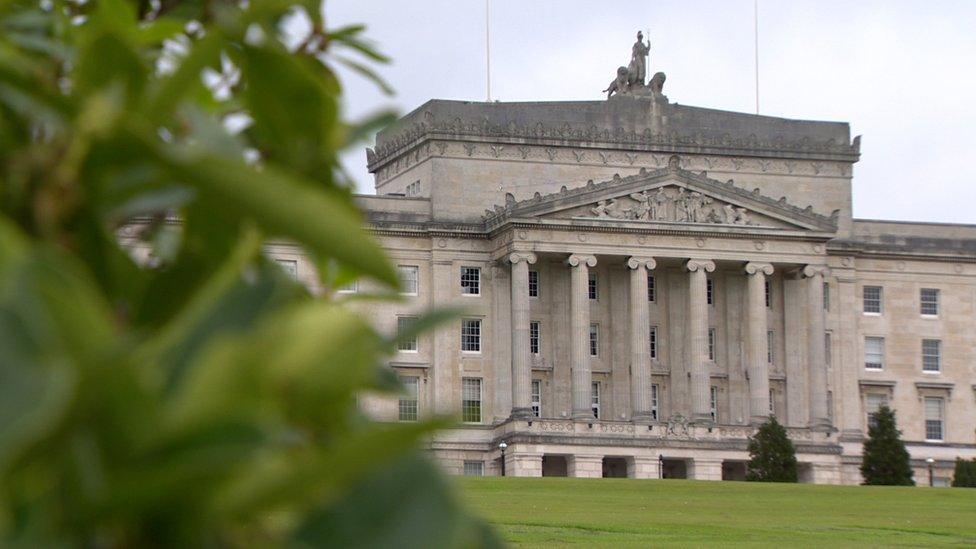
- Published7 September 2015
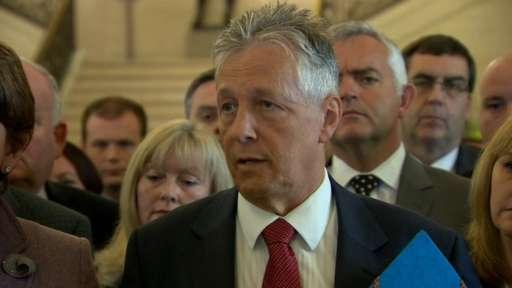
- Published29 August 2015
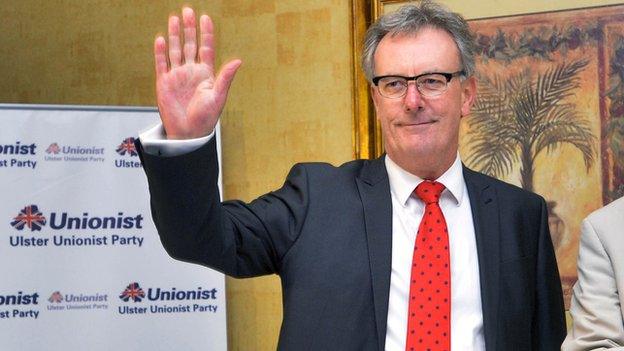
- Published21 August 2015
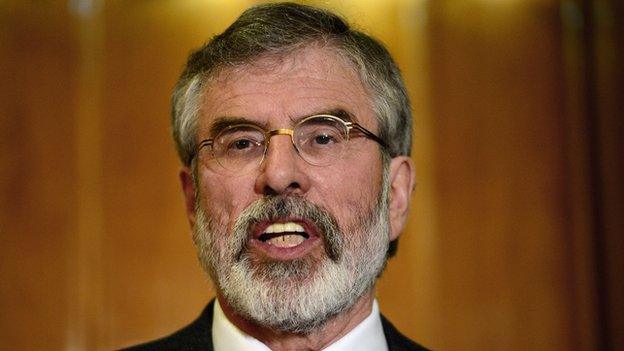
- Published20 August 2015
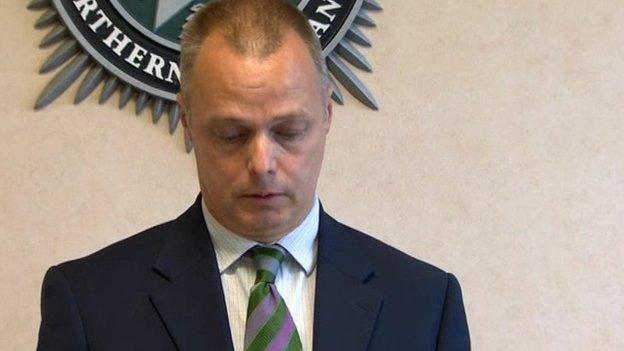
- Published13 August 2015
